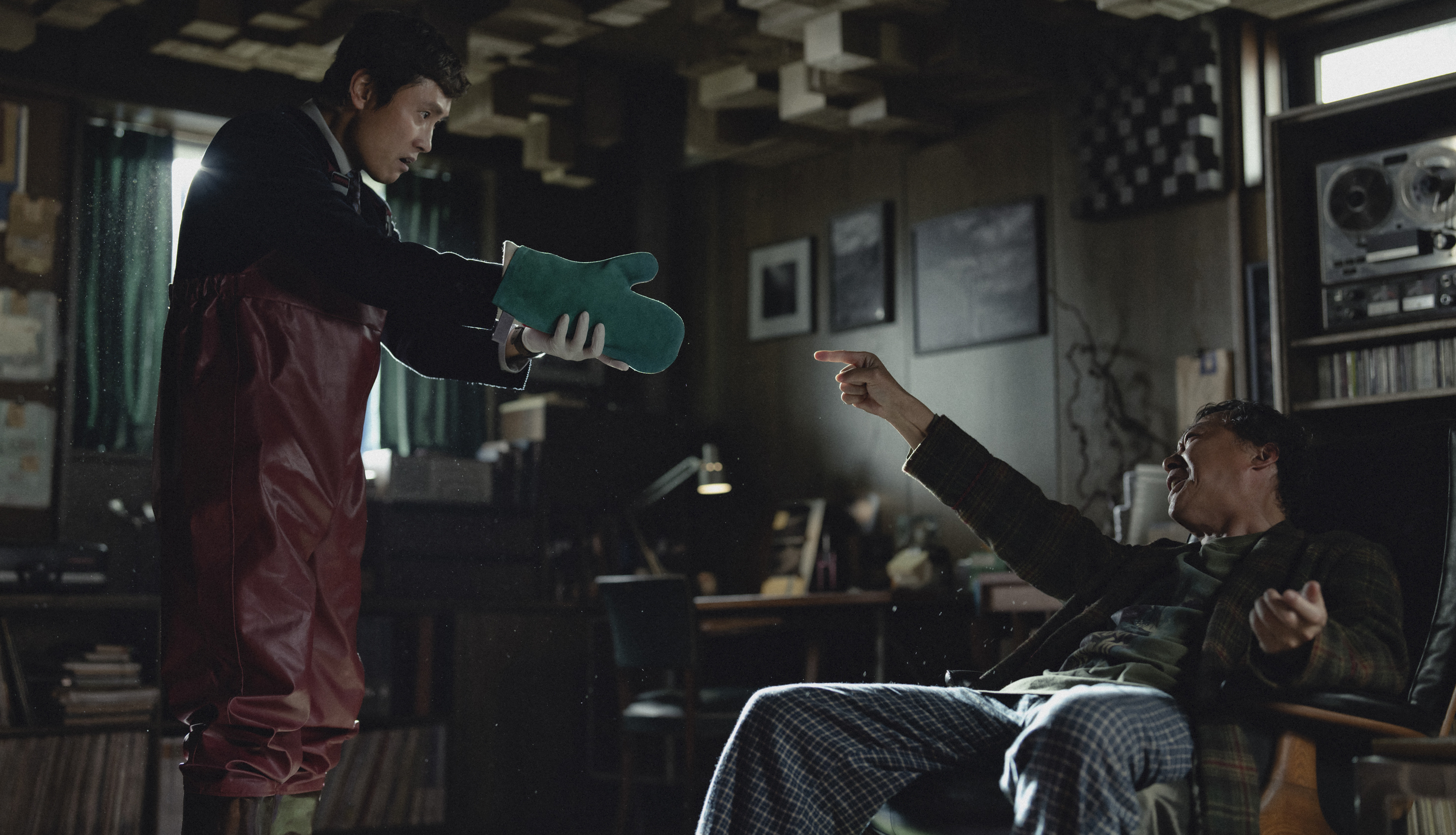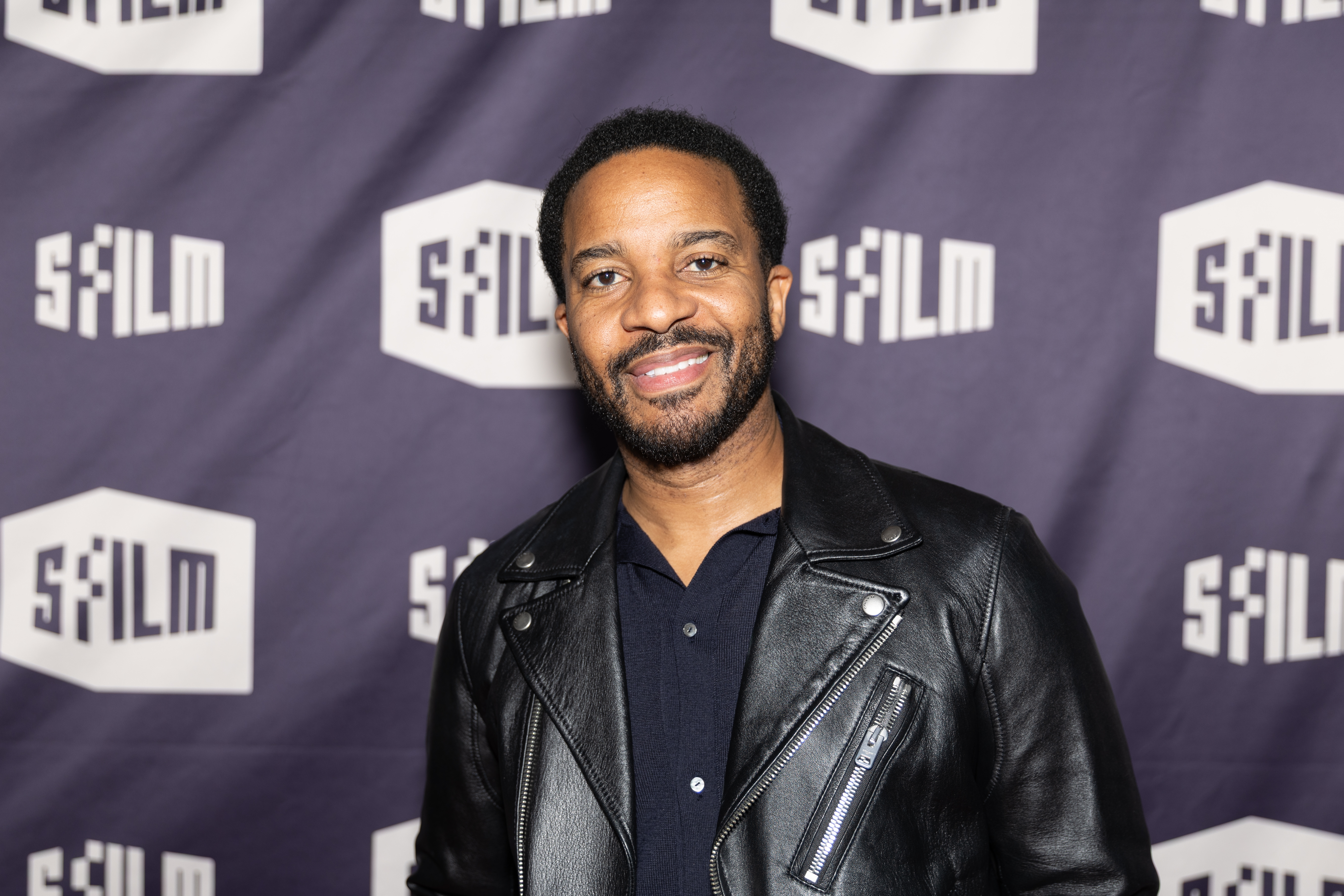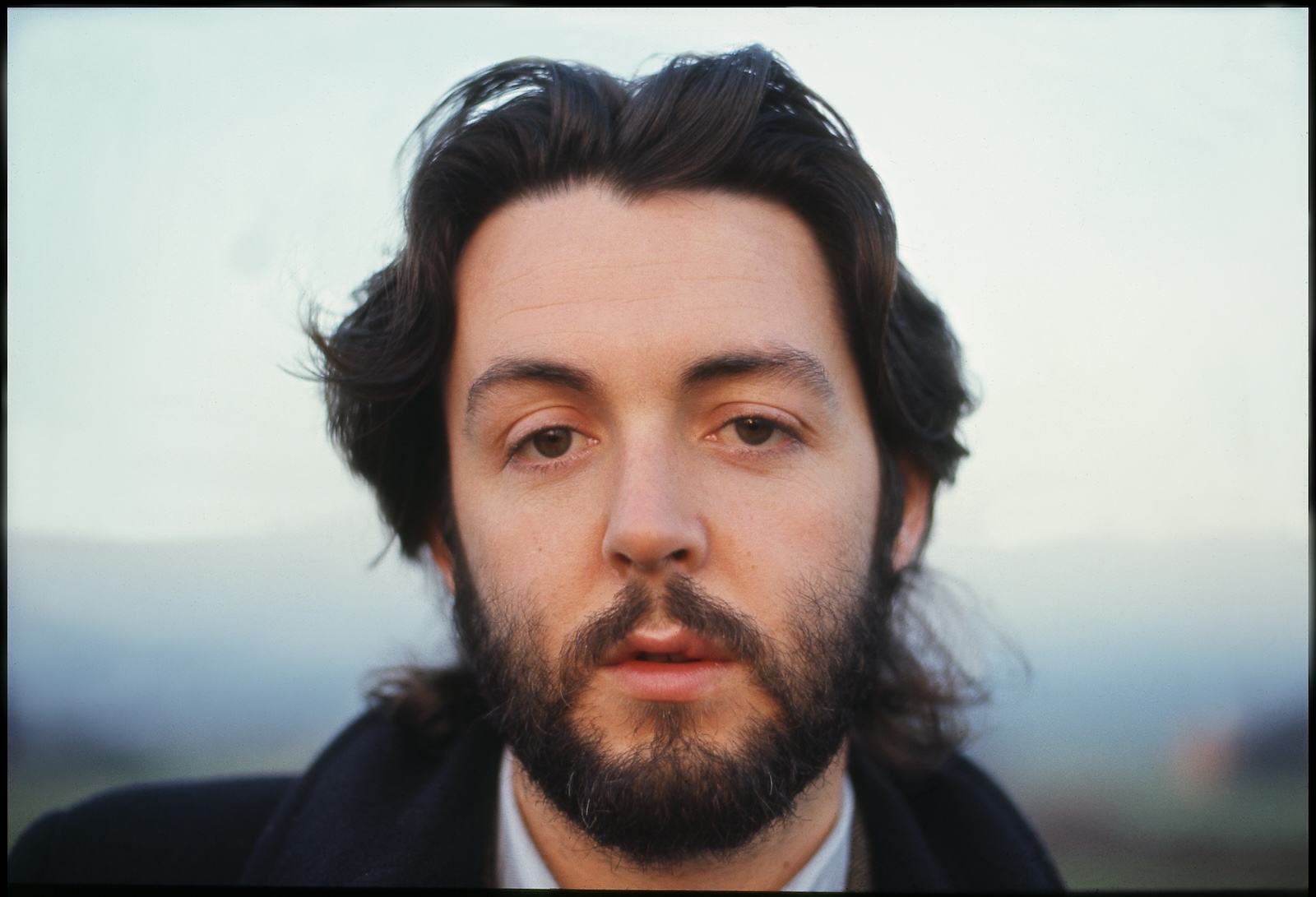
There are any number of movies about people who try to reinvent themselves in the face of a crisis. There are many fewer movies about people who violently refuse to even consider that idea — people who would rather kill someone else than become someone else. Park Chan-wook’s bleak, brilliant, and mordantly hilarious “No Other Choice” is the exception that proves the rule.
Plotted with ornate precision but unfolding with the panic of a desperate man, this Vantablack comedy tells the story of a mustached paper manufacturing specialist (“Squid Game” villain Lee Byung-hun as Man-su) who achieves the suburban idyll just in time to be let go from the company where he’s worked for the last 25 years. Some American investors have bought a piece of the business, and with it the right to restructure things as they see fit.
The high-end eel meat that Man-su received in the mail should’ve been his first clue that he was on the chopping block. Instead, Man-su saw it as proof that he’d finally made it. “I’ve got it all,” he sighs over the grill as he barbecues for his smiling wife Miri (Son Yejin) and their two children on the lawn of the brutalist manse he bought as a monument to his success.
But it’s already gone. “Off with your head” is a common refrain in Korea when someone gets fired, and Man-su truly reacts to the loss of his job as if it were an execution. He struggles to find another gig in the rapidly contracting paper industry (and to wave away dark thoughts about his dutiful wife fucking her tennis instructor), but there’s too much competition for the few spots that remain, and he refuses to consider another career path.
Man-su’s only hope: A position at the ascendant Moon Paper, where he’d work as a subordinate to one of his former underlings. The interview is a disaster, but just as his old company had “no other choice” but to let him go, Man-su conspires to give the Moon Paper executives “no other choice” but to bring him aboard. The paper business is a rather specialized field, and Man-su reasons that he would only have to murder a measly three people to become the only hirable candidate for the job. That doesn’t seem like an unreasonable body count for someone who’s about to default on his mortgage — someone who’s already suffered the indignity of being forced to cancel his family’s Netflix account. So Man-su publishes an ad for a fake new company as bait for his competition, and orchestrates a plan to kill his way back to the top.
Or to stay in the upper-middle, I should say. Among the more tragic ironies of “No Other Choice” is that Man-su goes to wild extremes just to avoid the horror of falling into a slightly lower tax bracket. To his mind, the line between heaven and hell is as thin as the glass walls of the spectacular greenhouse where Man-su tends to his bonsai trees at night.
But Park’s film — despite skewering capitalism with much of the same wit, sadness, and slapstick buffoonery that made Bong Joon Ho’s “Parasite” so resonant around the world — is pointedly not about poverty. While Miri can no longer afford to put meat in the noodle soup she makes for dinner, her kids are never at risk of going hungry. This is a story about sustenance of a different sort; it’s a “Looney Tunes”-like fable about how capitalism exerts itself by feeding our self-images as it fattens our wallets, and by conflating what we do with who we are to the point that one becomes dependent upon the other.
That feeling infects society on almost every level. The movie’s first life is so much funnier when it happens to other people snicker — a staple of Park’s darkly humane sense of humor — comes from the sight of Man-su being stripped naked of a store uniform as he quits a retail job in order to attend his Moon Paper interview. But in focusing on an upwardly mobile striver like Man-su, “No Other Choice” eschews both need and entitlement in order to dramatize the more broadly relatable dilemma of rooting your entire identity in a system that will tear you out of the soil without a second thought.

Immaculately spacious for a story this unsubtle, Park’s film toys with the idea that capitalism is an engine for moral impunity — that it’s a universally accepted excuse for the kind of thoughtless cruelties that would seem beyond reproach in any other context. And even though we understand the general outline of Man-su’s plan from the start, it’s so riveting to watch it play out (and go wrong) because “No Other Choice” sees his murder spree as a natural extension of capitalism, rather than a bizarre aberration from it. Demented, yes. Insane, not so much.
The result is the rare film that feels sympathetic toward its protagonist without ever rooting for him, and Lee’s elastic performance as Man-su — clumsy, pathetic, cucked by osmosis, and still only a hair worse than we are — is key to the balancing act of Park’s tragicomic tone. Easy to roll your eyes at from the opening scene and increasingly pigheaded in all of the ones that follow, Man-su starts off a long way from likable and tumbles much lower in our estimation from there. But the high-wire nature of the movie’s plot requires us to appreciate the credibility of Man-su’s conviction without necessarily sharing it ourselves (there’s a terrific scene where an oblivious Man-su lectures one of the men he wants to kill with all of the same perspective we’ve been screaming at him in our heads), and no one on Earth can match Park’s signature ability to make characters more endearing as they stumble toward the void.
In much of the filmmaker’s previous work, that ability has been expressed with the sweep of a symphony and the precision of a Swiss watch, but however tempting it is to bemoan the fact that Park’s work has been growing less hyper-stylized since 2016’s “The Handmaiden” (the ultimate display of his Vivaldian genius), there’s a unique thrill in watching one of the world’s most fastidious directors adapt a story (from Donald Westlake’s 1997 novel “The Ax”) about a half-witted moron whose first idea is to drop a flower pot on someone’s head. Imagine Wes Anderson collaborating with Joaquin Phoenix and you’ll have a vague idea of the tension inherent to Park Chan-wook building a movie around a guy like Man-su, who plots like the villain from “Oldboy” or the heroine of “Lady Vengeance” but executes with all the grace of Wile E. Coyote. A bottomless wellspring of physical comedy, Man-su is so bad at killing people that it eventually starts to seem as if he might be the only person who doesn’t survive this movie.
“No Other Choice” is unmistakably still a Park Chan-wook project on its face (I lost count of all the diabolical match cuts, devious transitions, and delirious zooms that he sets to another string and harpsichord masterpiece from his long-time composer Cho Young-wuk), but it’s meant to exist in a workaday register, and feels naturalistic even compared to the relatively, and I stress relatively, stripped down romanticism of “Decision to Leave.” Not only does that rawer approach offer a metatextual twist on the tension that’s pulling Man-su apart at the seams (that between resistance and reinvention), it also creates a more immediate tension of its own: that between a delicately arranged movie and a main character so chaotic that you almost can’t imagine him doing anything right. It allows “No Other Choice” to be both larger than life and also just a few missed paychecks away from a conceivable reality.
But the Man-su we see at the end of his rope isn’t the same Man-su who won his industry’s most coveted and meaningless award just a few years prior. He’s better in some ways and worse in several others. More importantly, he was more practical then. Having a steady job can have that effect. Now it’s up to his wife Miri, another of Park’s indelible female leads, to be the family’s last bastion of logic.
As Man-su’s arc begins to wilt toward the end of the story, the crude violence of his plan gradually overgrown with gardening metaphors and magical thinking, Miri’s presence becomes stronger to balance things out. Although “No Other Choice” lacks the emotional gutpunch of Park’s best films (much as its devastatingly ironic final shot leaves a lasting bruise in its own right), Miri becomes a poignant vessel for all of the movie’s conflicted feelings about self-worth and survival. It’s Miri who’s forced to account for what matters to their family, and for what they might be willing to live with or without. It’s Miri who makes the hardest choices in a movie where everyone else refuses to accept that they have any choices to make at all.
Miri’s final decision to [redacted] is as easy to rebuke as Man-su’s initial decision to become a serial killer, but — to the immense credit of a slaphappy movie with a surprisingly powerful sting — it’s also just as difficult to dismiss outright. She holds onto the only choice that all of this madness has left her with, and as the world around her surrenders its last measure of agency to the demands of an apathetically efficient future (shoutout to AI!), Miri’s refusal to abandon what’s left of her own almost feels like its own fucked up kind of heroic act. Capitalism won’t ever care about you, but people will always be full of surprises.
Grade: A-
“No Other Choice” premiered at the 2025 Venice Film Festival. NEON will release it in the United States.
Want to stay up to date on IndieWire’s film reviews and critical thoughts? Subscribe here to our newly launched newsletter, In Review by David Ehrlich, in which our Chief Film Critic and Head Reviews Editor rounds up the best new reviews and streaming picks along with some exclusive musings — all only available to subscribers.



